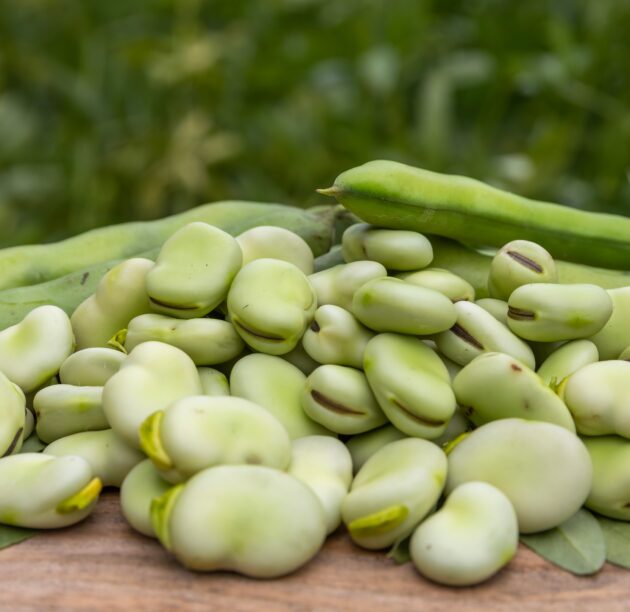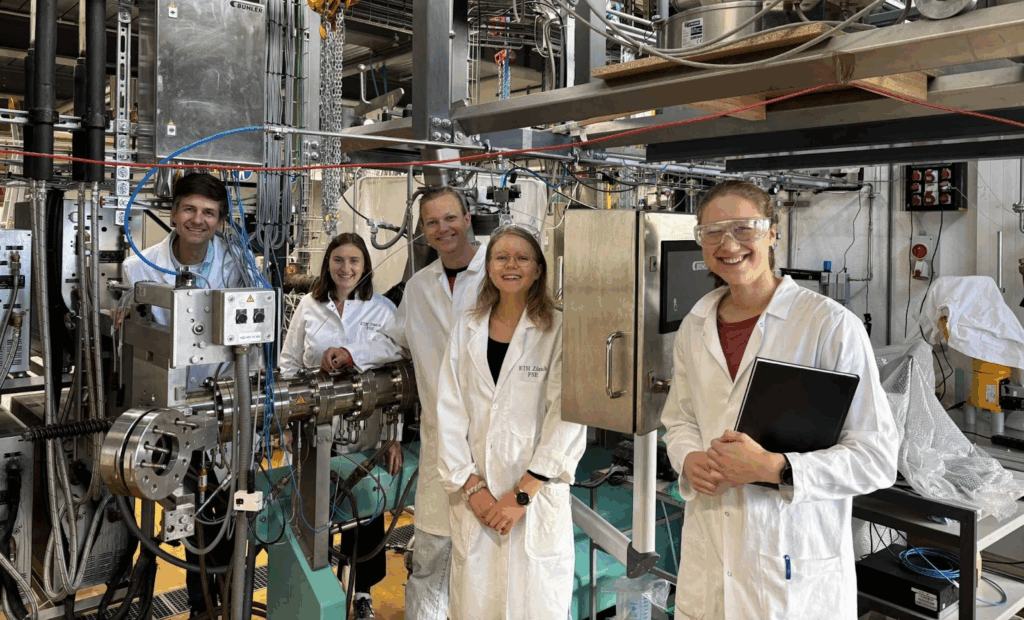Meet the researcher: Embracing the natural complexity of legumes with Patrick Rühs
Embracing the complexity of natural raw ingredients can help develop more nutritious, tastier and affordable plant-based products while challenging consumer concerns around ultra-processed foods.
Dieser Artikel ist hier auch auf Deutsch verfügbar.
18 September 2025


Name: Patrick Rühs
Job title: Assistant Professor of Food Structure Engineering
Organisation: ETH Zurich
Alternative protein specialism: Plant-based meat
Embracing the complexity of natural raw ingredients can help develop more nutritious, tastier and affordable plant-based products while challenging consumer concerns around ultra-processed foods.
That’s the message from Swiss researcher Dr Patrick Rühs, whose team at ETH Zurich has published a paper in Nature Food examining how a new mindset should focus on using more of the complex combinations of nutrients like protein, fibre, vitamins and minerals when making ingredients from legumes.
The paper draws on simple analogies, such as bread and pasta made from wholegrain rather than refined flour.
Patrick argues this approach has many advantages over the current system, which strives for ingredients high in purity for one micronutrient. By doing so, food producers often break raw materials down into their constituent parts before rebuilding them to develop end products – incorporating a larger number of production steps and ingredients.
Boosting consumer acceptance
“Nutritional quality is one advantage,” he said. “You can get more fibre and micronutrients from the raw material into the final food product by simply adjusting the processes you use.

“But if you don’t have to refine your ingredients so much, the products will get much cheaper – the moment you do that, consumer acceptance will go up.”
One example involves switching from highly purified protein isolates to more cost-effective plant-based concentrates with more fibre and intact materials – an approach already adopted by several European plant-based meat companies.
A challenge with this is that the properties of less refined ingredients may be more complex or less suited to perform certain functions like gelling, but the paper explores several examples of different approaches to overcoming these issues and areas for future exploration.
Another idea revolves around enhancing the flavour and texture of plant-based food products through traditional fermentation techniques – similar to those that have been used for centuries to make foods like tempeh.
This has the advantage that the organisms involved are capable of handling complex and constantly-adapting raw materials, making food production resilient to variations caused by climate change.
“The plant crops we have now will be very different over the next few years due to shorter cultivation periods and warmer weather,” he said.
“If we stick with refined ingredients, we might not be able to process them in the same way, but if we use the complex organisms involved in fermentation, we can develop food processes that are much more resilient to seasonal changes.”
Smarter food processing
Patrick believes that these approaches can help lead to ‘smarter’ food processing, in which more of the steps can take place in the same place, contributing to shorter supply chains.
“If you take citrus fibres from Spain and legumes from Canada, you have a complex supply chain that doesn’t make sense,” he said. “But, if you just use local peas, you can use the whole of the pea fibre to make the same product.
“We can make much better food products by taking very smart decisions about where we take our raw materials from – using more of the inputs that are present in a single plant.”
The focus on legumes can also help improve Switzerland’s self-sufficiency – another issue that ETH researchers have explored – and Patrick welcomes policies supporting Swiss food producers to grow and process more of these crops, such as those being discussed as part of the Swiss Nutrition Strategy.
Tackling the ultra-processed food debate
He believes using less refined raw materials can also help address misconceptions about ultra-processed foods (UPF), which have turned some consumers away from adopting plant-based meat despite a growing body of evidence highlighting several nutritional advantages, especially compared to the processed meat it is generally designed to replace.
The team plans to publish research exploring the nutritional benefits of processes such as fermentation and extrusion, but they are also working on another project to develop techniques enabling people to make plant-based meat products at home.
“The UPF debate means that people suddenly think that nothing should be processed,” he said. “With this work, we can help people understand what processing is and how it can be beneficial. If you do it yourself, you’ll realise that this is just another cooking step.”
Working for a better future
Patrick initially studied food science at ETH Zurich before researching how to develop new types of food using microorganisms. After a spell as head of science at plant-based meat company Planted Foods, he returned to ETH to continue his research.
Now, as the father of two young children, he is motivated by helping develop a more sustainable food system, saying: “I put a lot of extra energy into my work – I want to do something to help them have a better future.”
But he is also inspired by the growing passion for plant-based research he encounters in the students he teaches.
“Everyone on my team has very strong opinions and convictions,” he said. “They do what they’re doing because they believe they can help make the food system better.”
Are you interested in getting involved in the science of plant-based food, cultivated meat and fermentation? Take a look at our resources or check out our science page.
If you’re a researcher:
- To find funding opportunities, check out our research funding database for grants from across the sector, and our research grants for funding available from GFI.
- Explore our Advancing Solutions initiative, which highlights key alternative protein knowledge gaps.
- Subscribe to the alternative protein researcher directory to find potential collaborators or supervisors in the field.
- Look out for monthly science seminars run through our GFIdeas community.
If you’re a student:
- Join the Alt Protein Project – the global student movement dedicated to turning universities into engines for alternative protein education, research, and innovation.
- Find educational courses around the globe through our database.
- Sign up for our free online course introducing the science of sustainable proteins, explore our resource guide explaining what is available to students or newcomers to the space, and check out our careers board for the latest job opportunities in this emerging field.
